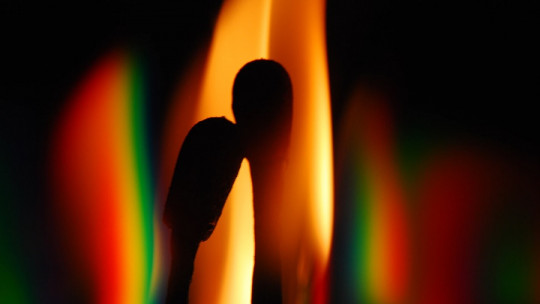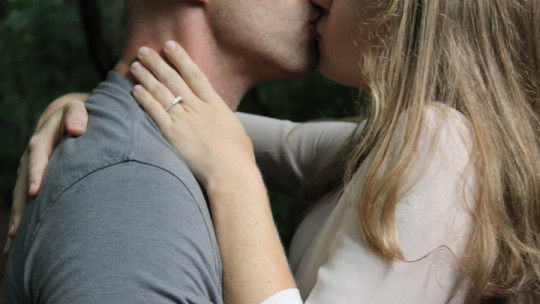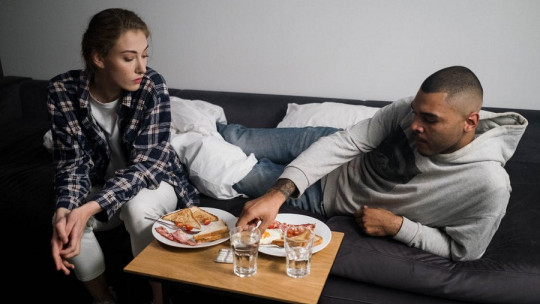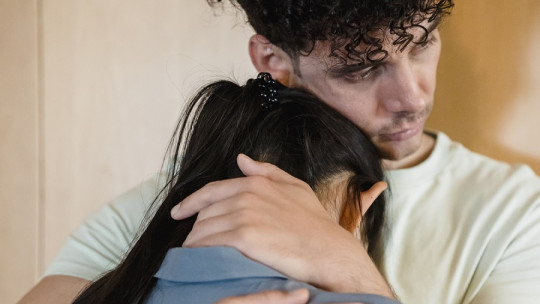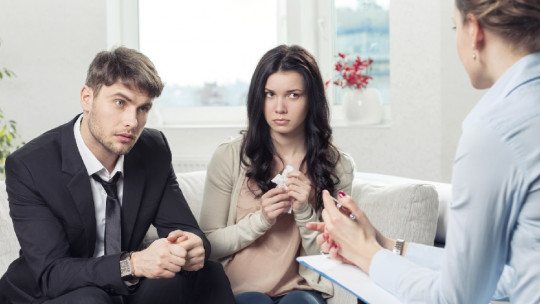
Despite the fact that our knowledge about mental illnesses is becoming more exhaustive and treatments are becoming more and more effective, the number of people suffering from psychological disorders is progressively increasing.
Among them, major depression stands out, a very common psychopathology that, in addition to having harmful effects on the person who suffers from it directly, also interferes with their emotional relationships. That is why many people who have developed a depressive disorder need to go to couples therapy, in addition to psychotherapy sessions to treat their disorder. To understand why this happened, let’s see How depression affects relationships
Mood disorders and their effects on relationships
By the 1990s, depression was the fourth disease with the greatest disabling effects in the world; However, the World Health Organization warns that it could currently be the first. In fact, some studies even suggest that Most people could at some point in their lives develop a series of symptoms shared with those of depression such as experiencing changes in sleep, loss of appetite, frequent crying, and loss of interest in activities we used to enjoy.
The effects of depression are noticeable in people’s behavior. They could have learned such behavioral patterns for different reasons, but the common denominator is that depressed people have given up their life projects oriented to their personal values because of their pain. These ingrained and habitual behaviors exhibited by people with depression could take various forms, such as the fact that leaving their beds or homes is a very difficult task. On the other hand, the effects of depression also become tangible in the vital areas in which the person develops, such as work, interpersonal relationships and even the couple.
What is depression and how is it expressed?
As we mentioned, depression is a psychological disorder that is characterized by presenting a series of specific symptoms. What we can notice about depression is that many forms through which it is expressed are exclusively perceptible by the person who suffers from it (such as feelings of guilt or self-reproaches), but many others become tangible on the concrete or level. behavioral.
People who are depressed because of their low mood stop doing activities that are important to them such as being absent from work, dropping out of university, stopping practicing sports and recreational activities or no longer interacting with loved ones.
From the perspective of some psychological treatments, it is these visible behaviors that sustain the illness — suggesting that the person could change how they behave and begin to direct themselves towards what is truly important to them, even experiencing the symptoms of depression such as reluctance. , anguish or deep sadness—; while others claim that it is necessary intervene on psychological processes since these are the ones that give rise to said actions and not the other way around.
Beyond this, it is likely that the people around them will notice that the actions carried out by a depressed person affect the ties they maintain, potentially deeply affecting their relationships. This may be evident to the partners of people with depression, although this is not always the case (unfortunately, many people suffer from this disorder in silence; and the people around them may not realize how much suffering lies behind their loved ones). In relation to this, let’s see how depression specifically affects the couple.
How does depression affect relationships?
Depression directly affects a person’s bonds, and the couple is no exception. In the first instance, the depressed person usually does not have the energy to share moments with his or her partner that used to be pleasant for him or her, such as taking a walk in the park while walking the dog, going to the movies together or going out to dinner.
The person suffering from depression may or may not be aware of how important it was for them to share some of these activities with their partner. In either case, she is likely to have the underlying idea that, due to the high levels of discomfort she experiences, she is unable to perform those tasks again until she feels well. However, Treatments based on behavioral approaches for depression have shown that it is possible for the person to begin to make changes in the way in which she relates in her vital areas (such as her partner) even if she “does not feel good”, and that nevertheless this could lead her to significantly improve her depression.
On the other hand, the other major area that could be affected as a result of the symptoms of depression is the reduction or loss of sexual desire. Although it is true that this varies according to each couple, sharing moments of intimacy is usually a very important factor in this type of bond. This could affect not only the person suffering from depression, but also, obviously, their partner.
The importance of going to psychotherapy
Overcoming depression is not a mere matter of willpower on the part of the person. Both she and her partners must keep this in mind so as not to invalidate her experience, since Depression is not simply “not wanting to do things” or “being sad.” but rather it is a suffering that must be named as such in order to act accordingly.
The experience of couples of people who suffer from depression is also valid, since some life projects that are usually shared with the other could be modified due to their disorder. In addition, the partner could also feel fear, sadness or even conflicting emotions in relation to the depression suffered by their partner. That is why, in both cases, consultation with a psychotherapist could be of great help to contain them emotionally and to face the complexity of this situation in a conscious and responsible manner.
There are two possible options: go to individualized psychotherapy sessions to treat depression, on the one hand, or add to the above by going to couples therapy sessions. In this way, both individual problems (more associated with depression) and relational problems (associated with dating or marriage) are intervened in a comprehensive way.
Be that as it may, if you think you need professional support of this type, contact us. At Psicomaster we will help you.


